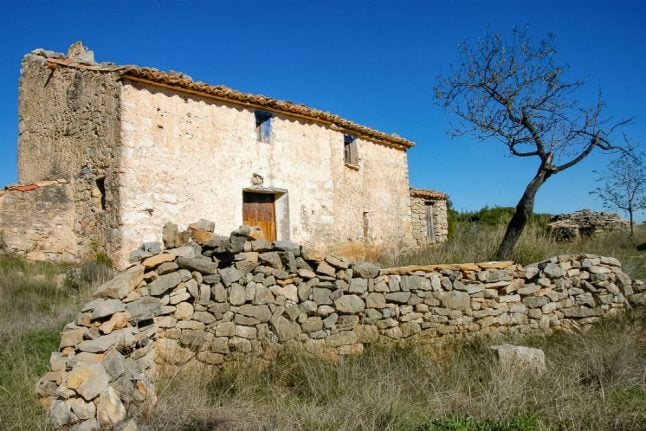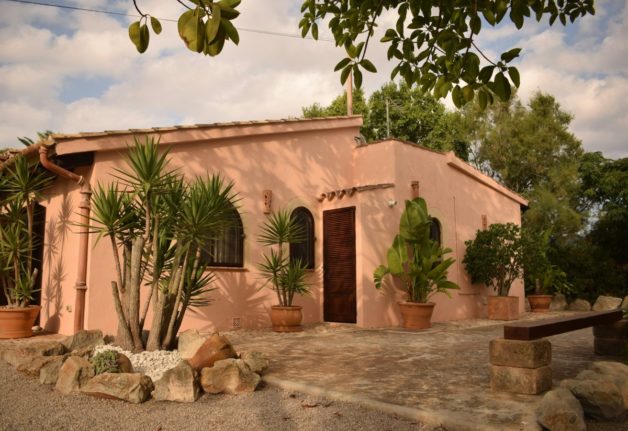I am not a great person for regrets, believing firmly that even negative events usually turn out for the better. That said, there are a number of avoidable mistakes I made before and after I bought a ruin in rural Spain.
It starts with the fact I was looking for a fantasy well away from the modern world with three stipulations that puzzled most agents. Please, no electricity supply in view, not near to the sea, and no McDonalds!
I searched from Girona down to Valencia and found this more difficult to satisfy than I originally thought. Many ruins with spectacular views and no electricity were in protected zones where any type of renovation was strictly forbidden.
Often access was hair-raising and you found yourself literally clinging to the side of a steep mountain like a goat. If not, then invariably a hideous pylon passed nearby – often above the ruin without it receiving any benefit.
Eventually I found the breath-taking El Maestrat, an area stretching between the upper provinces of Castellon and Teruel higher up. One of the last unspoilt regions of Spain, Unesco has praised it for its unrivalled air quality.

Planning permission is not generally a problem as the local towns are desperate for re-population. I found the people here welcoming, and instantly knew that this was where I wanted to be so here are the first three things that I did right:
- I bought close enough to a lively village so that I could forget the milk and go back to get it without much ado.
- I made sure that there was sufficient flat space around my ruin to construct terraces, plant trees (350 to date) and maybe install a pool.
- I didn’t fall for the trap of believing anything agents said about planning permission and I got proper planning permission.
Don’t rush
I found my dream after looking at a multitude of “you must be kidding places”. And for exactly this reason I made the following three mistakes:
- I was so desperate to buy “Masia Lavanda” when I eventually found it that I offered far too much – the locals got wind of my folly so considered me fair game forever more.
- I listened to the advice of the estate agent and hired her recommended builder. He turned out to be a crook. She turned out to know nothing at all about him!
- Said builder fleeced me of €23,000 for an inadequate building project. This resulted in the forestry service issuing proceedings against me as my project did not include “an impact on the environment” survey. An additional unnecessary €4,000 wasted!

All of this was my fault in the end. I thought I could micro manage from Liverpool where I had a busy career (to pay for this!) and just drop in three days a month without speaking a word of Spanish. So this is the next advice:
- Get to know your forestry officers. They are likely to be sympathetic to your needs if you consult them.
- Don’t do anything to your ruin before you have got to know it well.
- Take an intensive Spanish course and download podcasts for the car.
- Take the stars out of your eyes. The opportunists can see them.
Over two years I went through various builders, or pretend builders and then finally faced facts:
- You have to be there!
- Absolutely, never, ever, no matter what a good idea it seems at the time, hire someone you have met in a bar.
- Always get an itemised quote and go through it with a fine toothcomb.

Learn Spanish and join in the local community
This is where Spanish is essential. Many builders under-quote just to get the job. When you complain, they will point to their quote and yes, what you thought you had asked for in your pigeon Spanish, simply is not there.
So eventually I did face facts and, age 49, I gave up my established career in Liverpool to move to Spain. This what I got right:
- My ruin had a separate small casita on the land that was charming and habitable so I saved a fortune on hostel fees and learned what I actually needed in the process.
- I applied (after the quotes so that they were not inflated) for a EU eco grant and received it!
- I started to write a blog about the local area that opened many doors – in other words, I joined in.
In direct contrast to the above I will fully admit, never having been part of a village with its incessant gossip and small town politics, I wish I had known how to avoid becoming the target of this gossip, in particular amongst the British ex-pats. My strong advice is:
- Be polite, but distant until you can assess the local community and the various personalities. It will save a lot of heartache.
Brexit woes
Maybe the biggest “what I wish I knew” has to be that never in a century of Sundays did I imagine that the United Kingdom would leave Europe.
If I had, I would have spent less time starring dreamily at the unpolluted skies and more time finding out which paperwork I needed to fill out in Spain. Like so many others, I just did what I had to do when it hit me in the face. We were part of Europe weren’t we?
- I delayed becoming a permanent resident for 4 years. If I hadn’t I would have been able to apply for Spanish citizenship before the Brexit deadline.
- I just received my first speeding fine after 10 years. I thought I had done well. However I wish I had got one 6 years ago as this little indiscretion revealed I was supposed to change my UK license for a Spanish one within 6 months of acquiring permanent Spanish residency. So I have been driving illegally in Spain for 6 years.







 Please whitelist us to continue reading.
Please whitelist us to continue reading.
Why can’t anyone see this? It is not nice and also please look at my further blogs, especially recipes. Even my husband can’t not subscribe! Quite upset